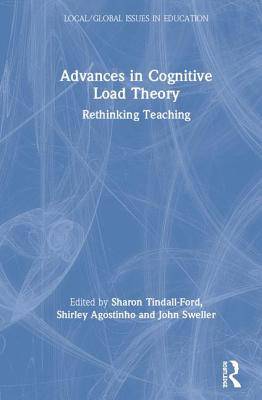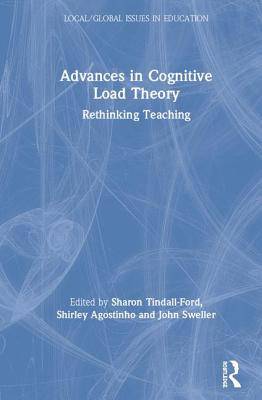
- Retrait gratuit dans votre magasin Club
- 7.000.000 titres dans notre catalogue
- Payer en toute sécurité
- Toujours un magasin près de chez vous
- Retrait gratuit dans votre magasin Club
- 7.000.000 titres dans notre catalogue
- Payer en toute sécurité
- Toujours un magasin près de chez vous
Advances in Cognitive Load Theory
Rethinking Teaching
Description
Cognitive load theory uses our knowledge of how people learn, think and solve problems to design instruction. In turn, instructional design is the central activity of classroom teachers, of curriculum designers, and of publishers of textbooks and educational materials, including digital information. Characteristically, the theory is used to generate hypotheses that are tested using randomized controlled trials. Cognitive load theory rests on a base of hundreds of randomized controlled trials testing many thousands of primary and secondary school children as well as adults.
That research has been conducted by many research groups from around the world and has resulted in a wide range of novel instructional procedures that have been tested for effectiveness. Advances in Cognitive Load Theory, in describing current research, continues in this tradition. Exploring a wide range of instructional issues dealt with by the theory, it covers all general curriculum areas critical to educational and training institutions and outlines recent extensions to other psycho-educational constructs including motivation and engagement.
With contributions from the leading figures from around the world, this book provides a one-stop-shop for the latest in cognitive load theory research and guidelines for how the findings can be applied in practice.
Spécifications
Parties prenantes
- Editeur:
Contenu
- Nombre de pages :
- 248
- Langue:
- Anglais
- Collection :
Caractéristiques
- EAN:
- 9780367246884
- Date de parution :
- 25-06-19
- Format:
- Livre relié
- Format numérique:
- Genaaid
- Dimensions :
- 157 mm x 239 mm
- Poids :
- 498 g






